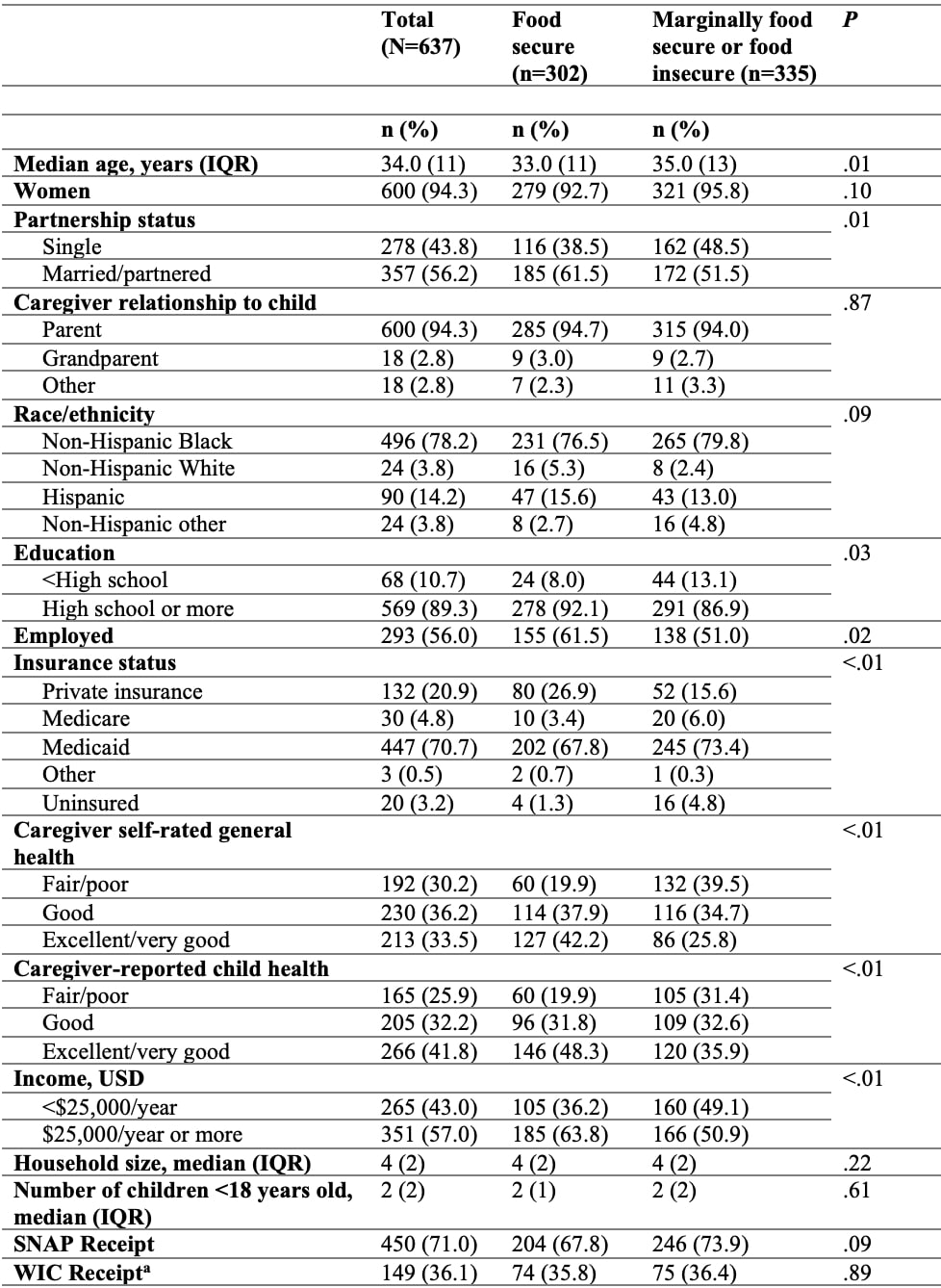Health Equity/Social Determinants of Health
Health Equity/Social Determinants of Health 10
591 - Knowledge about, use of and need for community food supports among parents of hospitalized children experiencing food insecurity: baseline data from the CommunityRx-Hunger RCT
Publication Number: 591.411

Spencer Asay (he/him/his)
MS2
University of Chicago Division of the Biological Sciences The Pritzker School of Medicine
Chicago, Illinois, United States
Presenting Author(s)
Background:
Food insecurity (FI) is a prevalent health-related social risk factor that can be exacerbated by pediatric hospitalization. Community food supports, such as food banks, can mitigate FI. The effectiveness of community food supports largely depends on individuals’ knowledge about, use of and need for these resources. Yet, little is known about how these factors relate to FI status among parents of hospitalized children.
Objective:
Describe food support knowledge, use and need among parents of hospitalized children and analyze the relationship between food support knowledge, use and need and FI status.
Design/Methods: We analyzed baseline data from Community-Rx-Hunger, an RCT of parents (N=637) of children admitted to an urban academic hospital between 2020-2022. The baseline survey response rate was 100%, as completion of baseline is part of the study enrollment process. Eligible participants included individuals who identified as the primary caregiver of a child < 18 years old hospitalized in the general or intensive care unit. Parents of newborns or children expected to be hospitalized for < 24 hours or >30 days were excluded. FI status was measured using the US Household Food Security Survey. We described participant sociodemographic characteristics and food support knowledge, use and need by FI status and examined bivariate associations using χ2 (categorical variables) and Kruskal-Wallis (continuous variables) tests. Multivariable logistic regression was used to model odds of being food secure by food support use and need. The model controlled for gender, race/ethnicity, income, partnership status, nutrition benefits receipt and household size.
Results:
Participants were mostly non-Hispanic Black (78%) women (94%) who were the parent of the hospitalized child (94%) and had a median age of 34 years. Over half of parents were experiencing marginal food security or FI (MFS/FI). Among parents experiencing MFS/FI, 27% reported no knowledge and 46% reported no use of food supports, while 54% reported needing food support. Food support knowledge was associated with being food secure (P=0.03). Food support need was associated with MFS/FI status (P< 0.01). Parents who used food supports were more likely to be food secure than those who did not use food supports but reported needing food support (aOR: 2.17, 95% CI: 1.12-4.21).
Conclusion(s):
Parents of hospitalized children exhibited a high prevalence of FI and food support need but limited knowledge and use of community food supports. A hospital-based strategy that enhances knowledge and use of community food supports may help mitigate FI among this population.
.jpg)
Figure 1.jpeg
